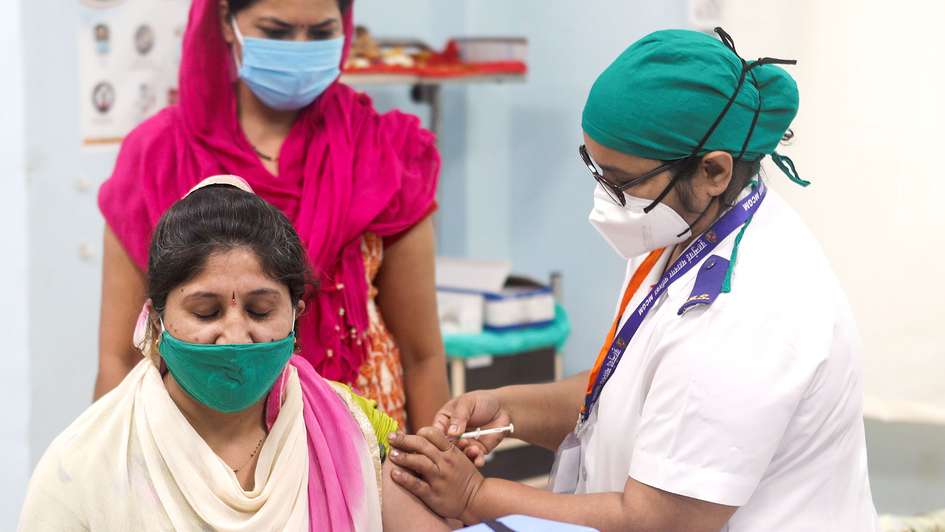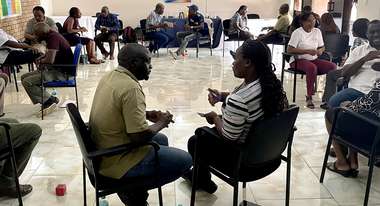Vaccine Solidarity for Poor Countries
Coronavirus, hunger and poverty can only be defeated together or not at all. Welthungerhilfe calls for vaccine solidarity for poor countries.

Bonn/Berlin, 2021-01-21 Since December of last year, coronavirus vaccination has started in many European countries, in Israel, and in America. 300 million people are to be vaccinated in India by the summer. However, many African countries have come away empty handed, as they cannot afford the expensive vaccines. Binding commitments should therefore be made at today's meeting of EU heads of government on fighting the pandemic, so poor countries have the same opportunity to overcome the pandemic. This involves funding vaccines, as well as setting aside patent rights, and supporting health systems. We can only overcome this global crisis together, and unilateral national initiatives make no sense in the context of a global pandemic.
Mathias Mogge, General Secretary of Welthungerhilfe, made the following statement on the issue:
“The WHO rightly warns of a moral failure due to dangerous nationalism among rich countries if vaccines are not available for the countries of the Global South. It would be a deadly signal if we did not manage to vaccinate old people and at-risk groups also in the poorest countries quickly and reliably through the global vaccination initiative, COVAX. However, there is still a shortfall of more than four billion dollars. At the same time, the global death toll of more than two million shows that pandemics do not respect borders, so solidarity must be a focal point of the fight against the disease. It is not just a question of helping everyone around the world to gain access to an affordable and safe vaccine. Scientific research findings and technologies relating to COVID-19 must be generally accessible, to ensure global manufacture and distribution of medications. Health and social systems must also be strengthened.
Millions of people in many poor countries are already paying a high price due to the economic consequences of the coronavirus crisis. Incomes have been lost due to lockdowns, prices for food staples have risen, and the nutrition situation has greatly worsened. According to UN predictions, the number of people suffering from hunger around the world will increase by up to 130 million, and 150 million people will fall into extreme poverty. We are endangering development progress made over recent decades if we only think of ourselves when combating the pandemic. ‘Vaccine nationalism’ is not just morally reprehensible, but also economically and politically unwise. The new coronavirus mutations clearly show that we can only defeat the global pandemic together, if we are to do so at all”.
Welthungerhilfe is one of the largest private aid organisations in Germany; politically independent and non-denominational. It is fighting for “Zero Hunger by 2030”. Since it was founded in 1962, more than 9,830 overseas projects in 70 countries have been supported with €3.95 billion. Welthungerhilfe works on the principle of empowering people to help themselves: from fast disaster relief to reconstruction and long-term development cooperation projects with national and international partner organisations.







